
Food and Literature
The more I think about it, the more I can connect food and writing. It's strange that it should be such an easy connection. Food is visceral. Both making it and eating it touch deep parts of our psyche, and raise strong feelings. I'm sure I'm not the first writer to compare the two, I'm just too lazy to Google to see who else has. It's like comparing food and sex. It seems natural
Nothing wrong with that, by the way. I once tried to recite a limerick comparing food and sex inside an enchanted circle in an attempt to summon Nigella Lawson, but that's a story for another day.
I was thinking about a discussion I had some time ago about different approaches to writing. It was another round of the ongoing Plotter/Pantser debate. For those who haven't been to one of these matches, Plotters plan out the book then they write it, while Pantser just wing that mother and then edit it into shape.
And I'm sure that single sentence will give rise to more brawls over the nuances of each method, but that's tangential to my point.
I compared the methods to cooking. saying that as an unsalvageable pantser I love to cook but hate to bake. Baking involves organization and prep work and knowing what you are doing before you do it. You can't pull the cake out halfway through baking and taste it to decide whether it really should be carrot cake instead of chocolate. Or even to add more sugar. You get baking right from the start or you don't.
Now if you're making a sauce or a stew you can start out with a vague idea what you want, throw some carrots, onions and celery in the pot with some butter, then hunt in the fridge and cupboards and see just what you can come up with. Organization and prep never hurt a good sauce, but there's a lot more room to figure it out as you go.
Now, to extend the metaphor, people feel strongly about the right way both to write and to cook.
And they're wrong about both.
People who love food or literature have "rules." Adverbs are to be avoided. Strenuously. And garlic powder is lazy. And we have rules about what foods or books are acceptable. Some people won't touch romance novels or dairy. Action/adventure and red meat will lead to poor health.
I used to be an insufferable snob about both. But then I had an epiphany. It came in the form or a Hawaiian pizza.
Pineapple, bacon and ham on pizza is wrong. But I no longer want to be right. It's a food that I was duped into trying, and it changed my life. Now my one rule is "try it before you dismiss it."
In the same way that I try never to adhere to any rules about what to consume or not to consume, I have tried to ignore any rules about how to produce or not produce something.
I found it easier than most to break free of the rules because of my background. I have no formal education in either writing or cooking. I just like to read and to eat, so I decided I wanted to be the guy who made that wonderful stuff. Rather than take classes, I just tried to imitate what I liked, but being a difficult- to- manage, independent pain in the ass -or, as we like to say in America, a rugged individual, I put my own spin on pretty much everything. I did a lot of writing, and a lot of cooking. I am the default chef at the ambulance company when I'm on shift. I started out throwing stuff together that seemed like it would be good, and people liked it.
While there are no rules, there are guidelines. There are tried and true techniques, things that tend to work and things that don't. Apples compliment pork, basil is always good with tomatoes. Tough cuts of meat benefit from being cooked low and slow, while tender ones do best with a quick sear, left bloody in the middle. Pace in writing works the same. Some scenes are best served quick, hot and bloody, and some should slowly develop flavor, transform that which is tough and daunting into something that melts in you mouth. Understand and respect your ingredients and your techniques. But don't be shackled by them.
And you can always throw cheese on anything. People may roll their eyes and call it out as a cheap gimmick, but we all love a little cheese.
My last rule for avoiding rules, is never let somebody tell you what you shouldn't dislike. It's ok to dislike stuffed mushrooms and George R R Martin. Doesn't mean either isn't well done, but it's ok to dislike something because it has too much fungus or despair. In the same vein, try not to judge others too harshly. If somebody wants to eat his steak well done and read Da Vinci Code, well, you and I both know he's wrong, but try to live and let live.
Finally, like in food, commercial success in writing doesn't mean it's actually very good. The next time you disparage a Dan Brown novel and people accuse you of sour grapes, just ask them if they think a chef at a Michelin starred restaurant wishes he made Big Macs. If sales is the measure of quality, then it's Ronald McDonald and not Escoffier to whom chefs should aspire.
So get in the kitchen, or to the keyboard. Don't worry about the right way or the wrong way or what experts or (shudder) critics have to say. Just make something delicious.
Then learn from what you've done, and make it better next time. Learn what others have done and incorporate it. Make your audience happy.
And if all else fails, just throw some cheese on it.
Books by Patrick LeClerc
Immortal Vagabond Healer Series
Book 1
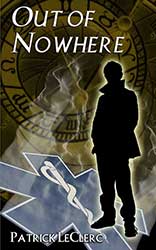
Sean Danet is immortal—a fact he has cloaked for centuries, behind enemy lines and now a paramedic’s uniform. Having forgotten most of his distant past, he has finally found peace. But there are some things you cannot escape, however much distance you put behind you.
Buy NowBook 2
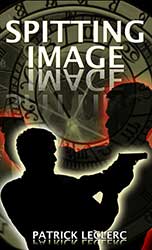
Immortal Sean Danet can heal others with a touch. Finally, after too long as a rootless vagabond, he has found a place he feels he belongs, with friends he can trust and the love of an intelligent, beautiful woman. The life he dreamed of but never expected to attain.
Buy NowShort Historical Adventures
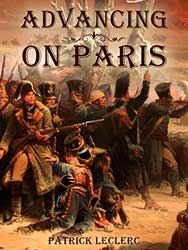
One of the problems with being immortal is you get to live through all of history's most famous blunders. Like Napoleon's inspired idea for a land war in Asia. If you love historical military fiction, action and adventure, or just one of the sexiest urban fantasy heroes of all, Advancing on Paris is a must.
Buy NowMore Great Fiction from Patrick LeClerc
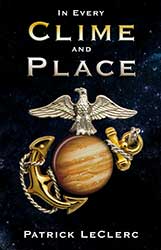
Semper Fidelis. The motto of the United States Marine Corps. On the ragged edges of civilization, Corporal Michael Collins has lived those words, taking on riots and evacuations, rebels and terrorists. Asteroid belt patrol is just another deployment. Ninety nine percent boredom, one percent terror.
Buy Now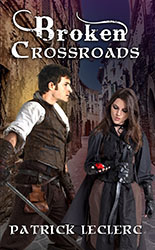
The city of Laimrig, once a mighty hub of commerce and a seat of power sinks into corruption and decay. Slavers, crime lords and corrupt officials hold sway while the ruling nobility wallow in decadence. War rages beyond the borders, while within rebellion simmers and sinister plots unfold.
Buy Now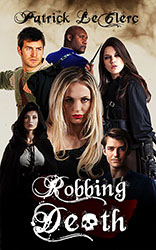
Trilisean is an acrobat turned burglar. Conn is a jaded former mercenary. Against the background of deadly blades, subtle schemes, glittering treasures, and dark sorceries, fate has thrown them together.
And fate has a sense of humor.
Buy Now